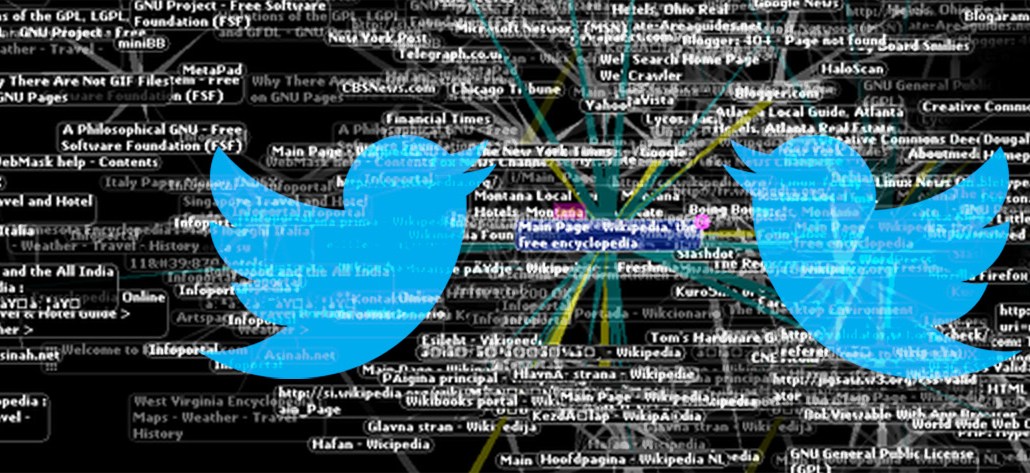Last chance to save on Digiday Publishing Summit passes is February 9

Twitter has built a multibillion dollar business out of obscuring the line between advertising and content, allowing brands to more naturally interject themselves in a rolling social media conversation.
But the blurring of that line can make for some unfortunate, tone deaf or insensitive brand messaging when controversy strikes, such as last night, when a St. Louis County grand jury decided to not indict police officer Darren Wilson for killing Michael Brown in an altercation earlier this summer. The decision set off a wave of protests across the country as people considered it just the latest instance of a racist justice system.
Twitter occupied the center of the conversation, serving as a town square for people to vent, argue and lament. A whopping 3.3 million Ferguson-related tweets were sent from Monday to mid-day Tuesday, making it the most popular conversation subject on Twitter during that time, according to analytics firm Crimson Hexagon. Even the second most popular term, “grand jury,” was Ferguson-related, with 1.3 million tweets. And between wrenching messages came brand tweets for everything from doughnuts to upcoming movies. Many advertisers, including Digiday, had their promoted tweets run alongside missives about the sad state of racism in the country.
Why is every 5th tweet in the stream tonight an ad from Dunkin Donuts? Did they buy specific Twitter time for the #Ferguson announcement?
— Peter Shankman (@petershankman) November 25, 2014
As parts of Ferguson were being destroyed and protesters were being gassed by riot police, supermodel Kate Upton said “War is coming!” in a promoted tweet for mobile game Game of War – Fire Age.
For a second, I thought Kate Upton was getting super political and incendiary. #Ferguson pic.twitter.com/nCgxKHBWaP — Jon Bershad (@JonBershad) November 25, 2014
It wasn’t a good look for Upton or the other brands that forgot to pause their ads, but it also raises a question about whether Twitter — whose entire selling point to brands is the ability to be part of conversations in real-time — has a responsibility to protect their advertisers and pause ads entirely. After all, it’s not like Twitter was surprised that the decision was looming and it would elicit an intense outpouring on the platform, which has been the center of discussion around Brown’s death since this summer.
“Twitter should have paused ads,” according to Ben Kunz, vp at media agency Mediassociates. “No marketer wants to appear crass in moments of national crisis, and contextually placing your brand against tweets crying out against inhumanity is not a good play.”
Kunz added that pausing ads is nothing new, as newspapers have long had arrangements with airlines to pull ads the day following a crash.
Twitter does try to mitigate such situations by blacklisting certain terms when controversial news hits and the conversation surrounding the topic inevitably makes its way to Twitter. And it blacklisted items last night, too. But some promoted tweets, such as an innocuous app install ad from Foursquare, still felt misplaced, according to some users.
Guys. pic.twitter.com/ZSpuvpfiHb
— R/GA (@RGA) November 25, 2014
Foursquare paused its ads soon after, and has since reinitiated the campaign.
And yet, there’s the question of whether Twitter is subject to a double standard. After all, The New York Times was covering the news of the decision and protests with big display ads for luxury watches, and no expects broadcasters to stop running commercials after segments about sensitive topics.
@rga @bmorrissey Do we ask Chevy to stop their TV advertising during CNN’s coverage of Ferguson? Not sure why promoted tweets are an issue. — Ben Thoma (@StrictlyCircus) November 25, 2014
But others argue that Twitter’s inherently native ads make brands more susceptible to looking tactless, and that Twitter should take it upon itself to police its brands instead of placing the onus upon them.
Although Twitter is merely the latest platform to draw such scrutiny, the problem of poorly-placed ads is not limited to Twitter’s native ads and even predates Twitter’s very existence. For examples, one just need to read media reporter Jim Romenesko’s unfortunate ad placement series.
Ads as content, indeed.
More in Media

From vibes to data: Why some brands use predictive tech to vet creators
Brands like TheRealReal and Shark Ninja are turning to predictive models and datasets to guide their strategies.
In Graphic Detail: The puny nature of regulatory fines compared to Big Tech’s financial prowess
Big Tech could pay off over $7 billion in 2025 fines in less than one month, demonstrating the disparity between regulatory bite and corporate wealth.

WTF is vibe coding?
Vibe coding is an increasingly popular way of writing code using plain-language prompts that creators are leveraging to build apps, websites, and more.





